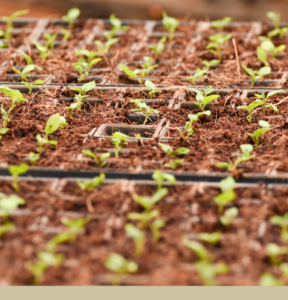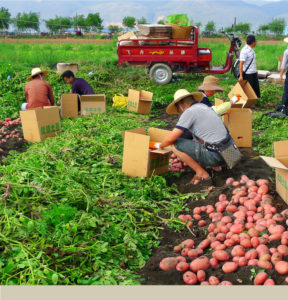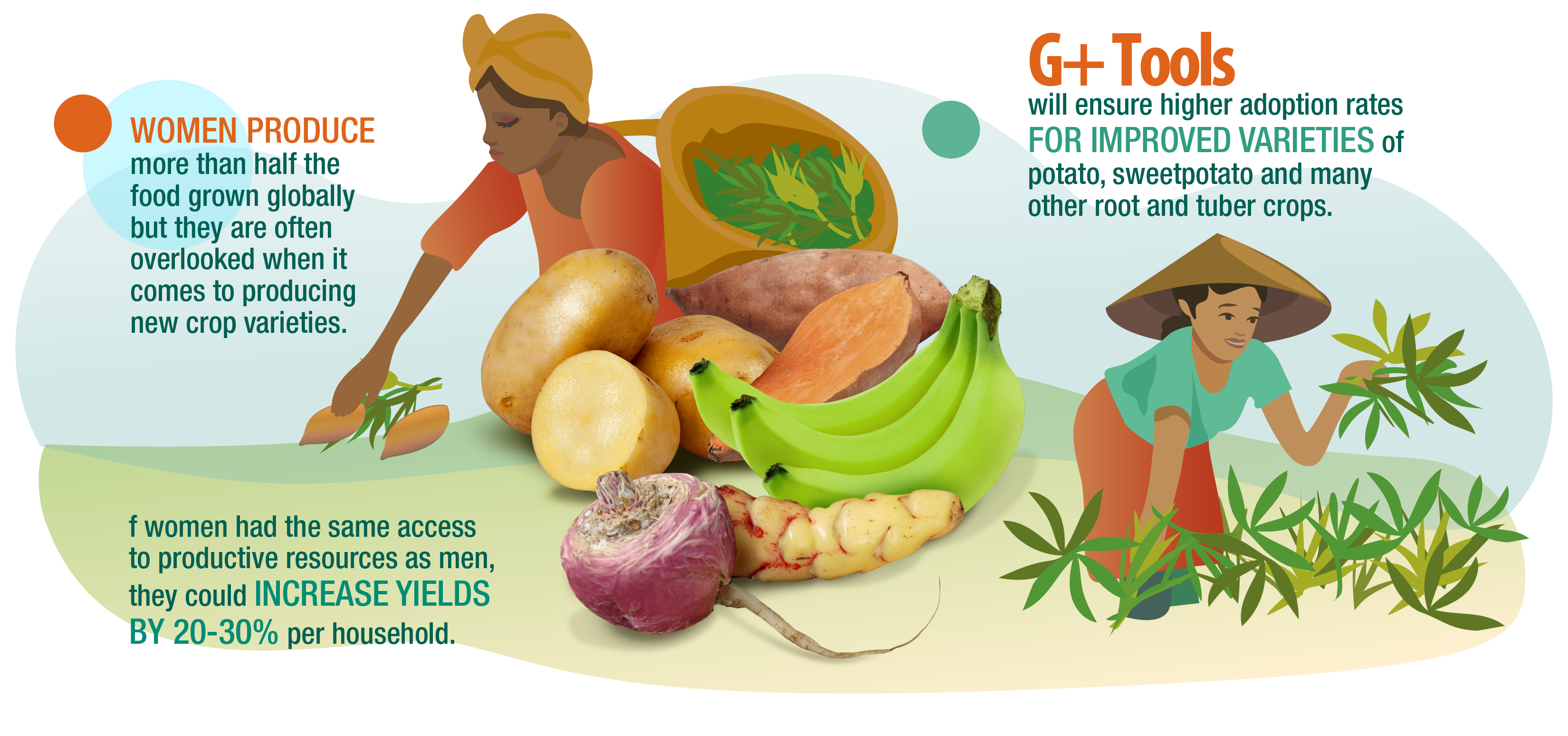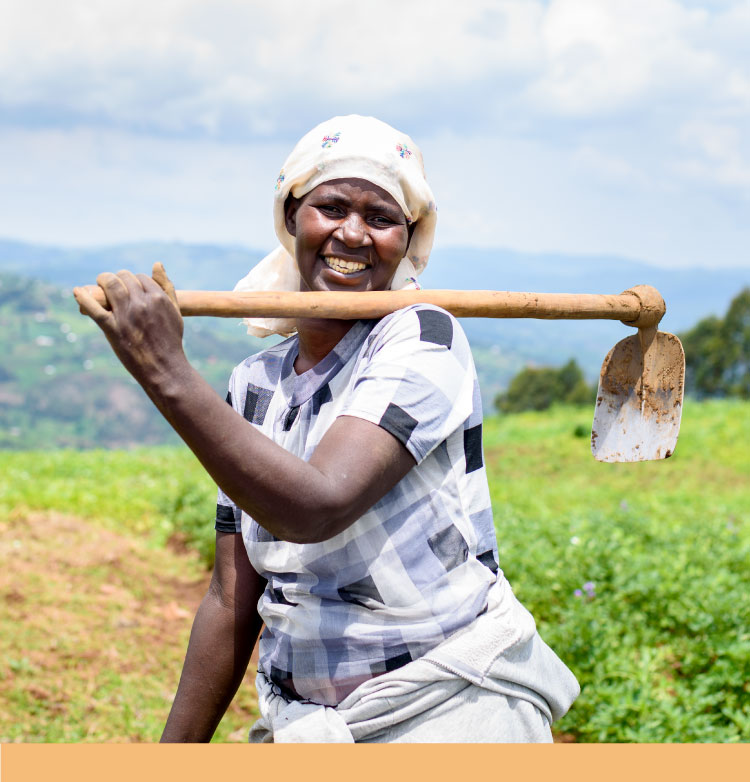INNOVATIONS
G+ tools for gender-responsive breeding
- Nutrition and food security
- Poverty reduction, livelihoods and jobs
- Gender equality, youth and social inclusion
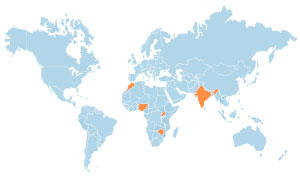
Policy or practice changed.
Piloting
Even with modern genetic tools, it takes years, and a lot of money, to breed a new crop variety. This effort is wasted if farmers refuse to plant the new variety, and if consumers won’t buy it.
A new crop variety can be successful if plant breeders create the types of crops that people want, but that entails addressing the needs of a large audience. Various kinds of farmers (including women) and consumers (including processors) decide the fate of a new variety. The tricky part is getting appropriate feedback from all of them. The G+ approach for gender responsive breeding offers an integrated, systematic and evidence-based protocol for customer and product profile development.
The G+ customer profile characterises client groups targeted for new varieties considering gender differences in knowledge, assets and decision-making. A product profile describes the traits that different actors want in a new variety. It gives plant breeders a target. The G+ product profile query tool helps to collect evidence to prioritize the traits in product profiles by examining both potential positive gender impacts of those traits, but also any negative impacts they might have.

The tools enable breeding programs to meaningfully think through social inclusivity, and especially women’s trait preferences and the special circumstances of different contexts (one size does not fit all). The tool was developed by the CGIAR Gender and Breeding Initiative (GBI) and is being piloted with the Excellence in Breeding Platform (EiB) on a selected set of breeding programs. The tools are crucial as CGIAR breeding transitions towards a more demand-driven, socially inclusive “stage gate” approach.
Breeders and social scientists think better than either group working alone. The idea for the innovation emerged from two gender and breeding workshops in which breeders and experienced social scientists realized that breeding new varieties, requires understanding user preferences of women and men from certain walks of life. Breeders, farmers, and consumers will benefit from understanding the traits that different people want in different crops. Varieties that farmers want to plant, that consumers want to buy, will contribute to poverty alleviation and inclusive development.
The United Kingdom Foreign, Commonwealth and Development Office (FCDO), the Australian Centre for International Agricultural Research (ACIAR), Swiss Agency for Development and Cooperation (SDC), the Norwegian Agency for Development Cooperation (NORAD), the Bill & Melinda Gates Foundation
The National Root Crop Research Institute (NRCRI, Nigeria), National Agricultural Research Organisation (NARO, Uganda), Pan-Africa Bean Research Alliance (PABRA), Institut national de la recherche agronomique (INRA, Morocco), Department of Plant Breeding & Genetics, Jawaharlal Nehru Krishi Vishwa Vidyallaya (JNKVV, Jabalpur, India), and the Ethiopian Institute of Agricultural Research (EIAR, Ethiopia).



